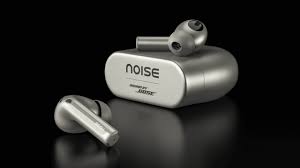Building high-quality backlinks is essential for improving your website’s search engine ranking and driving traffic. Here’s a list of 20 of the best sites to help you generate valuable backlinks.
- Guest Blogging Platforms
Medium: Publish articles and link back to your site.
WordPress: Contribute to relevant blogs in your niche.
- Social Media Sites
Facebook: Share content and link to your site in posts and groups.
LinkedIn: Write articles and share links within your network.
- Q&A Sites
Quora: Answer questions related to your industry and include links where appropriate.
Stack Exchange: Engage with users by providing detailed answers and linking back to your resources.
- Online Directories
Yelp: List your business and include a link to your website.
Yellow Pages: A classic directory for local businesses to gain visibility.
- Forums and Communities
Reddit: Participate in discussions and share links to your content in relevant subreddits.
Warrior Forum: Engage with digital marketing discussions and share your expertise.
- Content Aggregators
AllTop: Submit your blog to be featured and gain visibility.
Scoop.it: Curate content and link back to your original articles.
- Review Sites
Trustpilot: Encourage reviews for your business and include your website link.
G2: List your software or service and link back to your site.
- Educational Sites
Coursera: Create courses and link to your website in course materials.
edX: Similar to Coursera, allows you to share resources.
- Video Platforms
YouTube: Create videos related to your content and include links in the description.
Vimeo: Share videos and direct viewers to your site.
- Press Release Sites
PRWeb: Publish press releases that include backlinks to your site.
Newswire: Distribute newsworthy content and link back to your website.
- Article Submission Sites
EzineArticles: Submit articles with links back to your site.
ArticleCity: A platform to share articles while promoting your website.
- Infographic Sharing Sites
Visual.ly: Share infographics that link back to your site.
Pinterest: Pin your infographics and include links to your original content.
- Blog Commenting
Disqus: Engage in discussions on various blogs and leave insightful comments with links.
Blogspot: Comment on related blogs while linking back to your site.
- Niche-Specific Sites
GitHub: For tech-related content, contribute to projects and link to your resources.
Dribbble: If you’re a designer, showcase your work and link to your portfolio.
- Collaborative Projects
Google Docs: Collaborate on documents and share links with contributors.
Notion: Create shared resources that include links to your site.
- Podcasts
Apple Podcasts: Start your own podcast and link back to your website in episodes.
Spotify: Share podcast episodes with links to your site in descriptions.
- Networking Sites
Meetup: Host or attend events and include your website link in the event details.
Eventbrite: Create events and link to your site for more information.
- Local Business Sites
Google My Business: Optimize your listing with a link to your website.
Bing Places: Similar to Google My Business for local visibility.
- Photo Sharing Sites
Flickr: Share images and include your website link in descriptions.
Imgur: Share images related to your content with backlinks.
- Affiliate Networks
ShareASale: Partner with affiliates to promote your site and gain backlinks.
CJ Affiliate: Collaborate with affiliates to drive traffic and links to your website.
Conclusion
Utilizing these platforms can significantly enhance your backlink strategy. Focus on creating quality content and engaging authentically with your audience to build a robust backlink profile. By diversifying your backlink sources, you’ll improve your site’s visibility and authority in search engines.









Comments are closed.